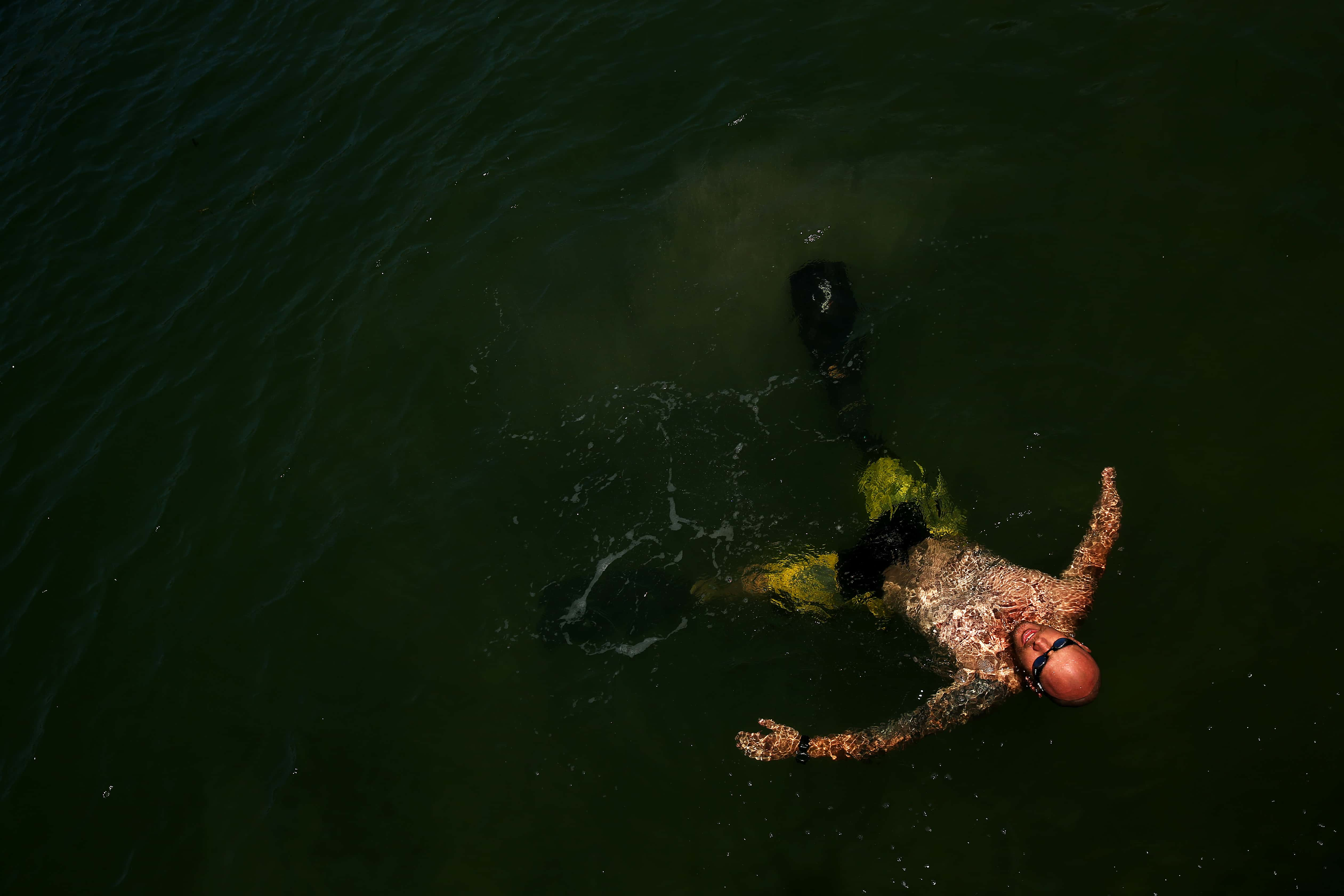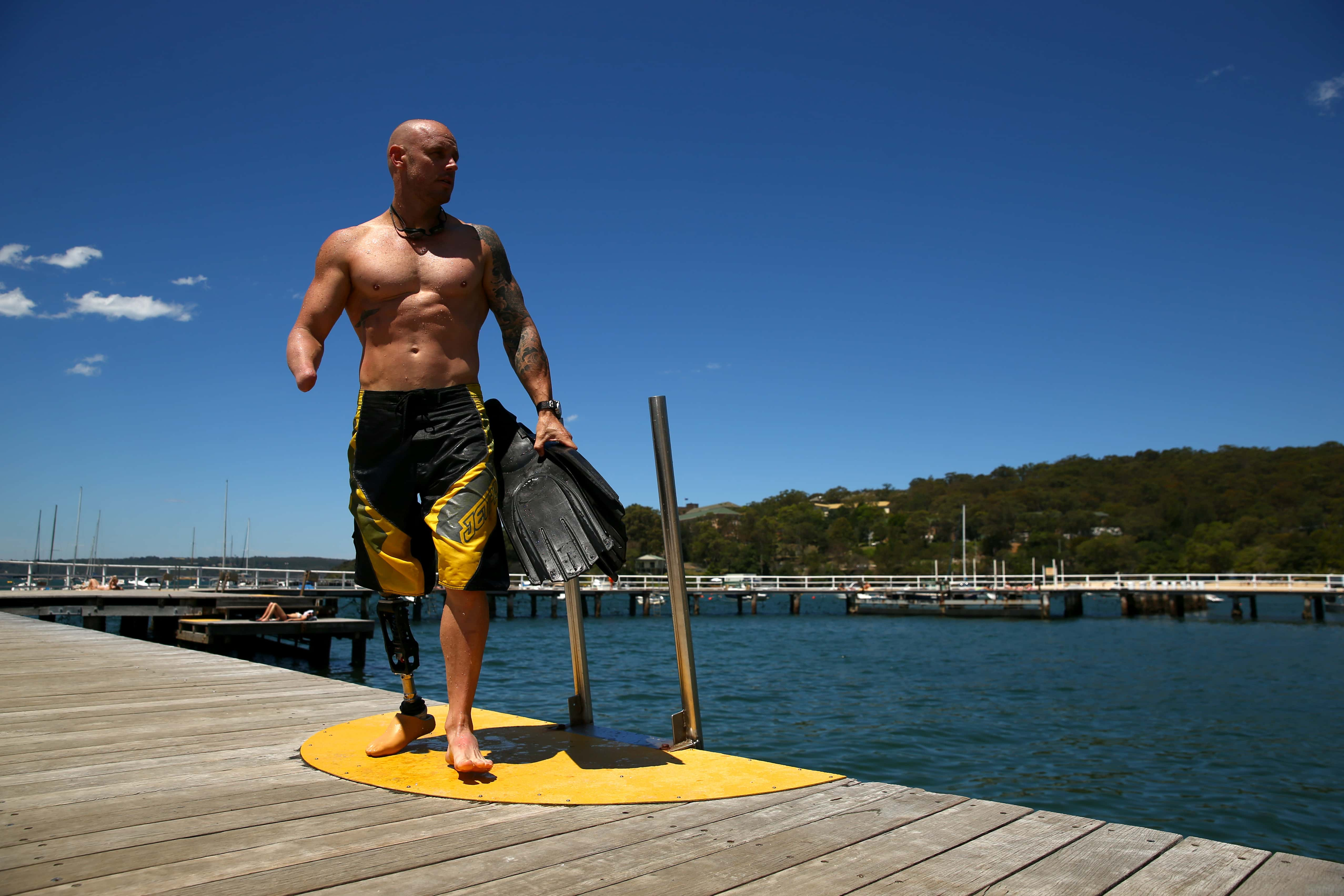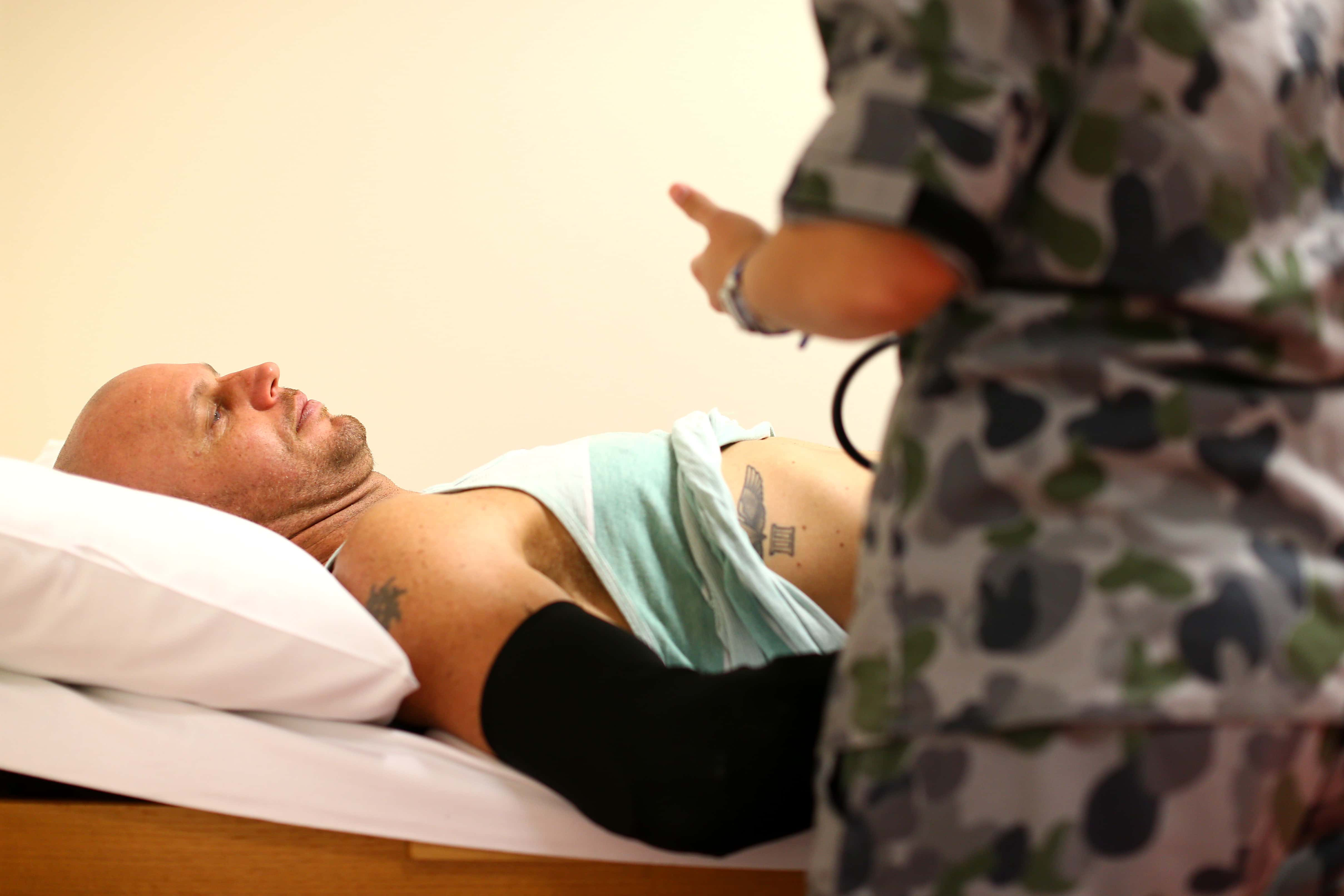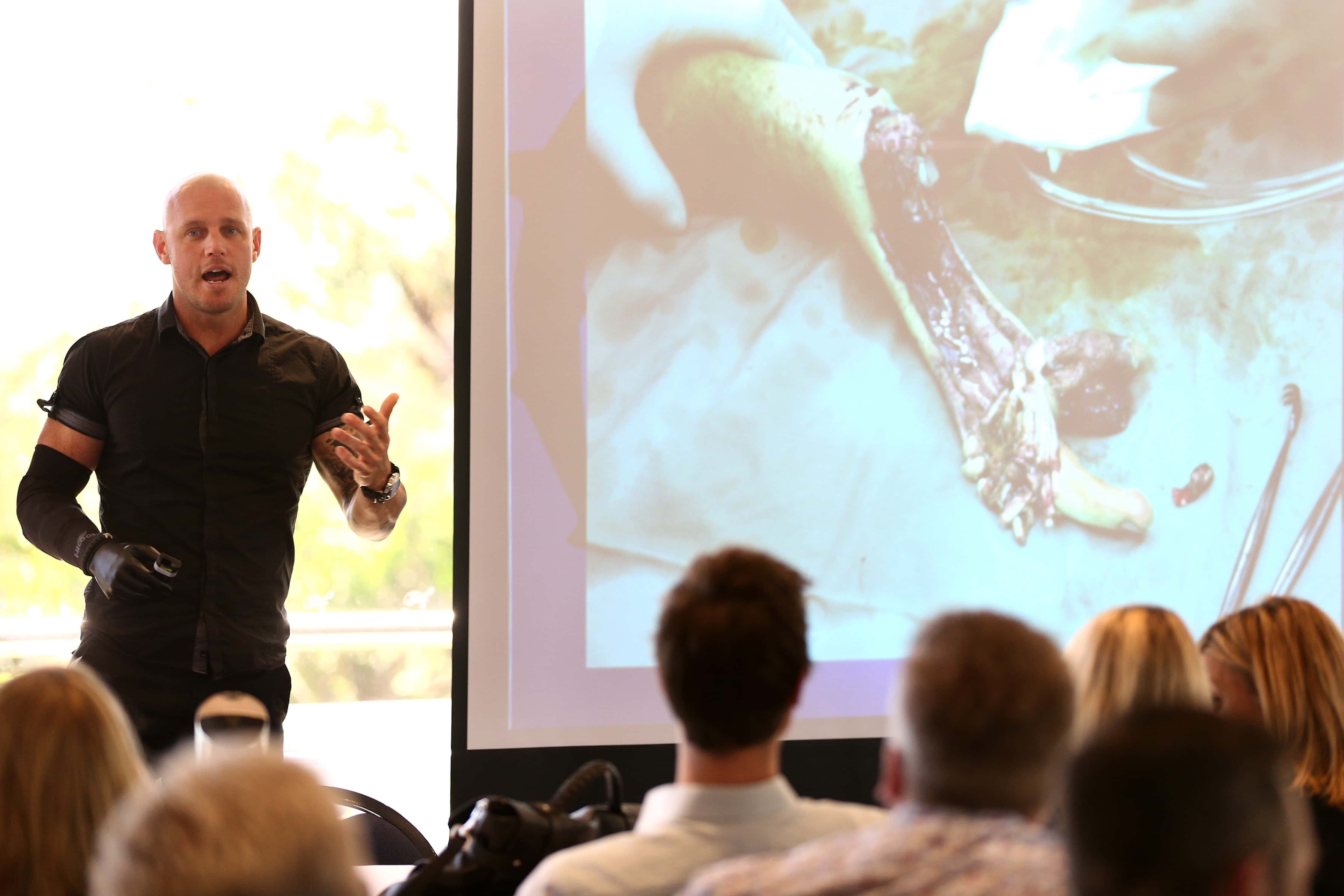As spate of shark attacks makes the news, you need to read Paul de Gelder's scary yet INSPIRING story

Paul de Gelder is an inspiration for millions across the globe. The former Australian Navy diver used to be scared of only two things in life -- sharks and public speaking. Ironically, he overcame those fears after losing part of his arm and leg in a vicious shark attack during a routine military exercise. Before he knew it, De Gelder became a motivational speaker and a shark advocate.
De Gelder was just 28 when he lost his forearm and right leg after being attacked by a bull shark in Sydney Harbor in 2009. The Navy diver was reportedly floating on his back during a counter-terrorism exercise when the sea beast struck. He remembered looking like "an injured seal" as he bobbed on the surface in a black wetsuit and black fins. De Gelder has previously spoken about his survived his own shark encounter more than a decade ago, recounting how much pain he had been in.
RELATED ARTICLES
FOURTH OF JULY SHARK ALERT: Authorities ramp up patrols after possible shark attack in Long Island
THE HUNTER BECOMES THE HUNTED: Orcas preying on Great Whites' livers in horrifying apex battle
Speaking to Australia's ABC News in a 2019 interview, De Gelder said he still "loves sharks", despite being seriously hurt in the attack. “If you can imagine a bear trap but instead of having big steel spikes, it has about 36 razor blades on either side and they move in opposite unison together, sawing through your flesh until they meet in the middle and then ripping out the rest,” he told the outlet. “That is what happened to my hamstring and to my hand. And it was very painful. I kept my stump above my heart to stem the bleeding, and I swam back to my safety boat. I was swimming through a pool of my own blood,” he added.

De Gelder recalled how he tried to punch the shark in the nose, but the predator began shaking him before he could. In the midst of the attack, the diver realized he "wasn't dead" when the shark's tail started thrashing the water, splashing some on his face. He immediately looked up to find the safety boat and was able to swim to safety despite losing a life-threatening amount of blood in the process.
Speaking to ABC, De Gelder explained that one cannot swim away from the shark as it would certainly trigger its "predatory mode." Instead, one must "face-off" against the beast. “What happens if you do get attacked? It may sound counterintuitive when dealing with a shark in your immediate vicinity while you are swimming in the water, but you have to remain calm," he said. “Because then you will be more clear-headed, and the one thing that you don't want to do is what you should do: you have to face off against the shark."

“If you swim away from it, you put it into its predatory mode and it will stalk you and it will hunt you and it will probably attack you. You have to face off against it," he continued.
“Sharks are often ambush hunters. They are opportunistic feeders and they won't attack something that they know is going to fight back, because they don't want to get hurt either.” De Gelder added, “What I've learned to do, drifting through the Atlantic Ocean with a school of oceanic whitetip sharks around me for two days and two nights, is if you meet them with aggression, they will meet you with aggression. Slowly push them away, show them you are a dominant force, remain calm and they are not going to attack you 99 percent of the time. But they are wild animals, so you have to be very, very cautious.”

Following the attack, the physically active diver was faced with several difficulties. He became hooked on painkillers such as Oxycontin but eventually realized that he had more to give to the world and must wean himself off any addictions.
Considering his life-altering experience, De Gelder was asked to do speaking presentations, but he turned them down initially as he was terrified of sharks and public speaking. However, he had a "rewarding experience" during a speaking assignment at a cancer camp for kids, and has since made a bit of a career out of his life. "I started doing more and more [speaking], to the point where after three-and-a-half years, I was making my two weeks' Navy wage in one hour. It got to the point where it was either, do I stay in the Navy and not do this speaking? Or, do I leave my guaranteed [Navy] paycheck to try this new career that may last a year or two?" he told Men's Health in 2018.

De Gelder has since written a book, trotted across the globe to document sharks, and even became a presenter for the Discovery Channel's 'Shark Week'. "Every time I’ve been faced with a big scary decision like this, I made the big scary choice, and it’s always worked out in the end. This was another big scary decision that I needed to make to change my life for the better," he told the magazine, noting how he left the Navy in August 2012 to become a full-time speaker -- a decision that would change his life for the better.
"I had to become somewhat of a shark expert out of necessity because the publicity from that shark attack was so huge," De Gelders said. "The more I learned about them, the more I understood how at threat their populations are, the challenges they’re facing, and also about the roles they play in our ocean," the diver added.










